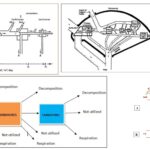Why do telomeres shorten?
Why do telomeres shorten?
Please login to submit an answer.
Telomeres shorten as a natural consequence of cell division. During DNA replication, the enzymes responsible for copying the DNA cannot fully replicate the very ends of chromosomes, known as the “end replication problem.” This results in the progressive loss of telomeric DNA with each cell division. Additionally, the telomeres shorten because they act as a “buffer” region to protect the coding sequences of chromosomes, which are gradually lost over time. When telomeres reach a critical length, the cell enters senescence (a state of irreversible growth arrest) or undergoes apoptosis (programmed cell death). Telomere shortening is associated with aging, as it limits the ability of cells to replicate and replace damaged or lost cells.
- Share on Facebook
- Share on Twitter
- Share on LinkedIn
Helpful: 0%




